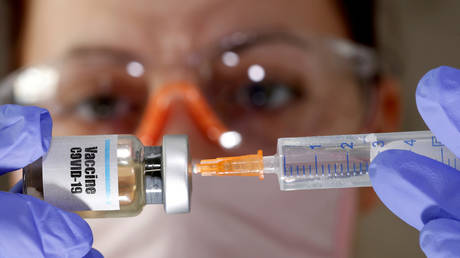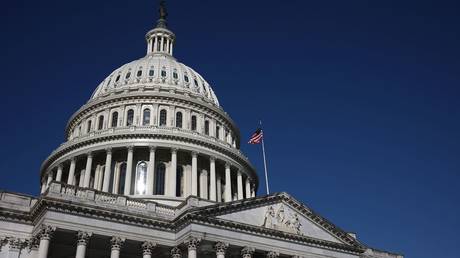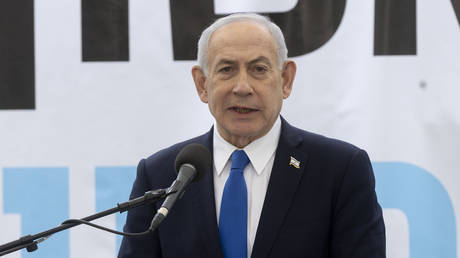
Competitors in the Covid-19 vaccine race are publishing clinical protocols in hopes of securing lucrative emergency approval, which Russia’s Sputnik V was previously attacked for seeking. This time, however, the media are quiet.
The frontrunners in the US and western Europe’s quest to develop a coronavirus vaccine – Pfizer, AstraZeneca, and Moderna – have published their trial protocols in response to growing public unease over the rapid rollout of the promised coronavirus magic bullet. They reveal an overwhelming emphasis on being first to secure emergency approval from the relevant regulators, suggesting the companies’ goal is maximum profits rather than ensuring the physical health of the hundreds of millions of people who will be expected to line up for vaccination.
Russia’s Sputnik V vaccine was excoriated in western media for seeking just such an emergency approval months ago. Ironically, the same publications that have denounced so-called “anti-vaxxers” as “the enemy” and called for locking them up as a public health threat flirted with similar rhetoric to cast doubt on the safety of the Russian shot.
That skepticism has all but evaporated as firms like Moderna and AstraZeneca, both pushing vaccines with untested delivery mechanisms and notable side effect issues, sprint for the finish line. While the media continue to question the “Warp Speed” pace of US President Donald Trump’s vaccine timetable, their criticism does not extend to the pharma companies themselves.
That reluctance is perhaps understandable, given the role Big Pharma plays in funding US media outlets through its advertisements. But the apparent gap between western media’s stated concern for the Russian population – who they seem to agree should not be subjected to a vaccine before the most thorough safety testing – and its indifference to Americans (or the British, who’ve already been burned by one rushed vaccine rollout during 2009’s swine flu debacle) should raise a few eyebrows.
The clinical protocols that have been released so far aren’t shy about prioritizing speed over safety, either. Pfizer’s, for example, includes multiple “interim analyses” – preliminary evaluations meant to show “as quickly as possible amid the devastating pandemic if our vaccine meets the stringent standards set by the FDA.” Under normal circumstances, vaccine trials follow patients for years after their last jab to make sure there are no late-appearing side effects.
The strategy echoes that used by remdesivir, a high-priced pharmaceutical touted as a coronavirus wonder drug by its manufacturer, Gilead, and US corona czar Anthony Fauci despite a lack of clinical evidence it saves lives. Even USA Today – hardly a pharma-skeptical outlet – questioned the FDA extending its emergency authorization of remdesivir to all hospitalized patients, including children, last month. Eagle-eyed doctors noticed an early remdesivir trial had had its clinical endpoints changed from death to shorter hospital stays, allowing the drug’s promoters to claim victory.
Meanwhile, Moderna revealed in a filing last month that it stands to make over $8 billion if its own highly-experimental formula gets emergency approval before January. Despite ominous clinical results, the firm had already started churning out millions of doses to ship in July, boasting it sought to make enough “to be able to vaccinate everybody in the US.” While touting claims of a “robust” immune response, the Moderna jab triggered adverse reactions in every trial participant who received two injections of the highest two dosages, according to trial results published in July.
And AstraZeneca was pressured into releasing its own clinical protocol over the weekend after a second participant fell ill with a rare spinal inflammation the company had already blamed on undiagnosed multiple sclerosis in the first afflicted patient. That trial sets a low bar of 50 percent effectiveness, which might smooth its way into emergency approval, but likely won’t help put concerned recipients at ease.
Russia’s Sputnik V continues to undergo post-approval trials and is being distributed to teachers and medical professionals first in advance of a population-wide rollout next year. President Vladimir Putin theatrically offered it to colleagues at a United Nations meeting earlier this month, mentioning he had already fielded some private inquiries.
Like this story? Share it with a friend!




